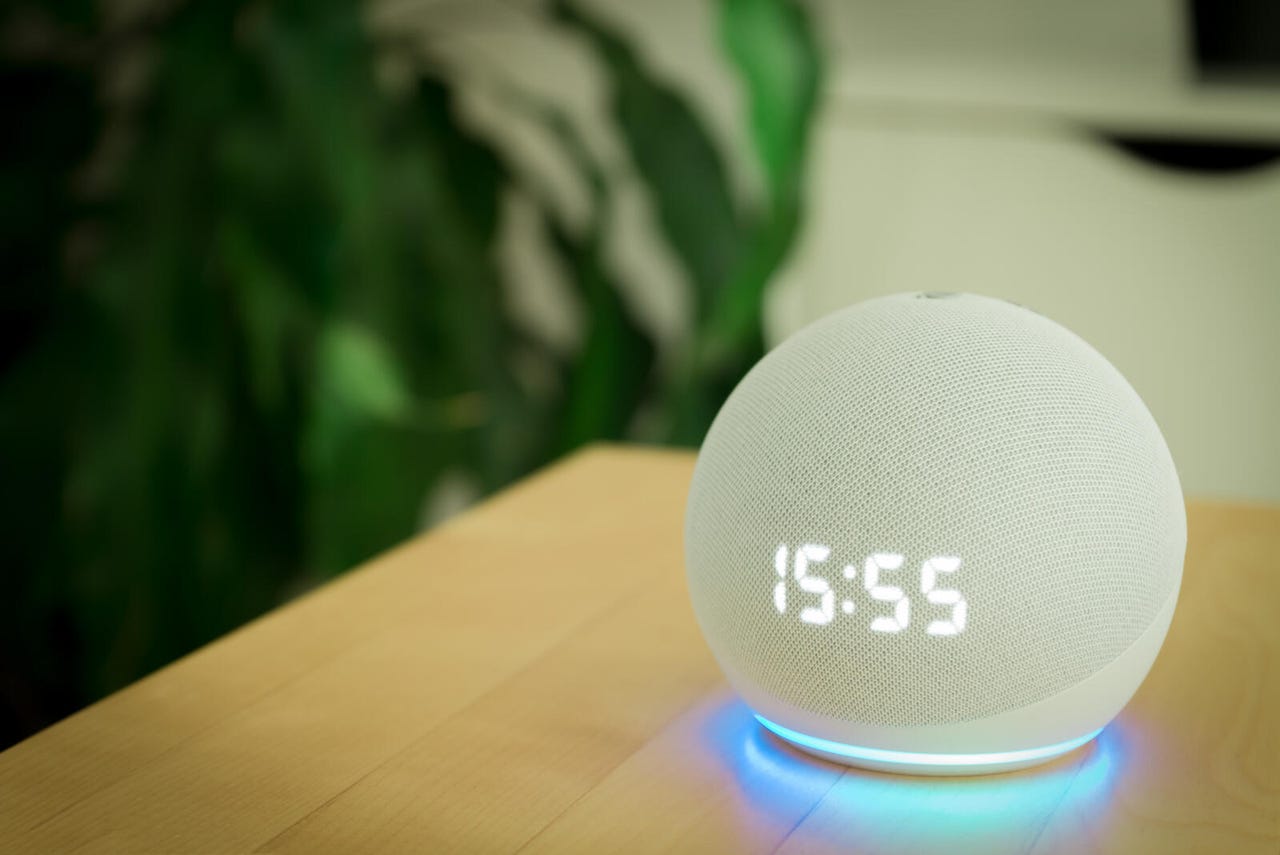
































Don't say anything. Alexa already knows.
ShutterstockThere are days when I fear for the future.
Amazon now has an entire army of Echo devices. Some listen to you. Some also watch you. Which should you choose? We help you decide.
Read nowI imagine we're all going to stop talking to each other in person, resorting instead to talking to our gadgets.
It's already happening. We ask them to turn off our lights, play our favorite music or just tell us what the weather is because we can't be bothered to look out of the window.
This all makes for an uncomfortable cacophony.
Thankfully, one of the world's most considerate companies understands the problem and wants to solve it.
Amazon, you see, doesn't actually want you to constantly hector Alexa. I know this because the company's senior vice president of Alexa, Tom Taylor, just said so.
At Lisbon's Web Summit, reported byCNBC, he explained Amazon has something far more peaceful in mind: Amazon's takeover of your mind.
No, he didn't quite put it like that. Instead, he offered: "You'll reach for your phone a little bit less, and you're talking to Alexa less."
Why? Because "we believe that the future of consumer technology is ambient intelligence, which uses AI to weave together devices and intelligent services. This isn't just more connected devices. It's about adding intelligence throughout the system to make the devices better."
Some might translate this as: "The idea is for the gadgets to already anticipate -- aka already know -- what you want."
This is, of course, an immensely flattering prospect.
Above all, we want to be understood. It's so rare when anyone else actually grasps who we really are and what we really want.
How lovely, then, that there'll be Alexa gadgets that instinctively understand us as well as, say, Mark Zuckerberg (thinks he) does.
I can, however, feel a couple of warning lights flickering in the wind.
For Alexa to know you better, Amazon has to know more about you. You, therefore, must give it more access to your innards.
The increasing scale of AI is raising the stakes for major ethical questions.
Read nowCurrently, Alexa offers so-called Routines, there for you to program your daily rituals such as when to turn on the heating and when to play a miserable Adele song.
But what if, in some blissful future, Alexa does it all on her own? Just to impress you. What if she observes you constantly, learns your predilections, and independently acts on them? Without you having to say a thing.
Not so long ago, filmmakers John Carlucci and Brandon LaGanke created a little movie in which an Alexa-type assistant decided that assisting didn't just mean observing and understanding. It meant actually telling a family what decisions to make.
It didn't have a happy ending, but is it so far-fetched?
Taylor himself suggested that Alexa could take over some parenting tasks: "Let's say you are a parent and want to make sure your kids do their chores," he said. "You could train Alexa to listen for the sound of Xbox turning on and have it automatically show your kids a to-do list on the Echo Show."
I just know the kids would really appreciate that.
Then again, perhaps our own personal Alexas will become far more brilliant and sensitive than, well, any of our friends and family.
I wonder, though, if, should Alexa ever make a mistake about your actual intentions, she'll apologize profusely.
Or will you suddenly hear: "Roger, I'm right. You are very much mistaken. You really do want the heat turned up to 72 degrees. Please don't argue with me. It's best if you just keep quiet and let me get on with it."?
 Tags chauds:
Intelligence artificielle
Innovation et Innovation
Tags chauds:
Intelligence artificielle
Innovation et Innovation